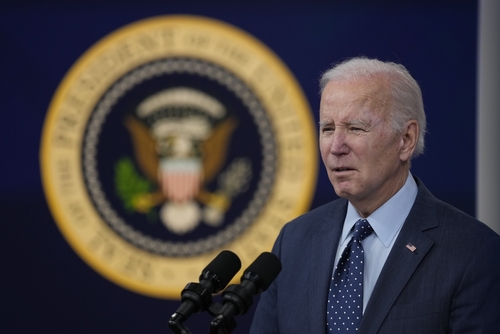President Joe Biden’s recent statements regarding the potential collapse of Assad’s regime in Syria underscore both a significant “act of justice” and a moment fraught with risk. As Assad’s long-standing grip seemingly loosens, the implications for regional stability might be profound, with newfound opportunities shadowed by challenges. What are the potential outcomes for a war-torn nation and a concerned international community?
Assad’s Regime Falls: A Historic Shift
The Syrian civil war, which has endured for nearly 14 years, saw the fall of President Bashar al-Assad, marking the end of over five decades of Assad family rule. This shift occurred after rebel forces took control of Damascus. Notably, Hayat Tahrir al-Sham (HTS), an Islamist faction with past al-Qaeda ties, led the offensive. Despite past affiliations, HTS has pledged tolerance, notably engaging with Aleppo’s Christian communities.
While Biden lauded the fall as “a fundamental act of justice,” he cautioned about the risks and uncertainties accompanying such upheaval. The transition period could either stabilize the region or foment further conflict, especially if extremist factions attempt to capitalize on the power vacuum created.
US Response and Concerns
Biden acknowledged the role of the United States and its allies in undermining Assad’s backers, notably Russia, Iran, and Hezbollah—key supporters of his regime. In a strategic move, US forces have continued airstrikes targeting Islamic State locations in central Syria. The US also emphasized the prevention of any ISIS resurgence, maintaining troop presence in the region to ensure stability.
Joe Biden stressed, “We’re clear-eyed about the fact that ISIS will try to take advantage of any vacuum to reestablish its capabilities.” He reaffirmed the US commitment to prevent such outcomes by maintaining approximately 900 troops in eastern Syria.
Humanitarian and Diplomatic Implications
The US has committed support for Syria’s neighboring countries and pledged humanitarian relief, focusing on aiding a nation ravaged by war. Biden also referenced journalist Austin Tice, detained since 2012, urging accountability for Assad’s regime while expressing hope for Tice’s recovery. Aligning with a UN-backed process, the US aims to engage with Syrian groups, supporting a sovereign and independent future for the country.
Despite the apparent victories, the remaining challenge lies with the Syrian opposition groups, whose past affiliations and actions pose questions for the future. As Biden remarked, “some of the rebel groups that took down Assad have their own grim record of terrorism.”
This pivotal juncture in Syrian and Middle Eastern history could redefine the geopolitical landscape and will require unparalleled diplomatic efforts to chart a stable path forward.
Sources:
- US Strikes ISIS Targets in Syria in Show of Force as Assad Exits
- Biden says fall of Syria’s Assad ‘moment of historic opportunity’ – Al-Monitor
- ‘Fundamental act of justice’: US President Joe Biden on fall of Assad government in Syria – Times of India
- Fall of Assad regime a ‘moment of historic opportunity’ for Syrian people, Biden says | Fox News
- Biden says Assad government’s fall in Syria is a ‘fundamental act of justice,’ but a ‘moment of risk and uncertainty’ – ABC News

